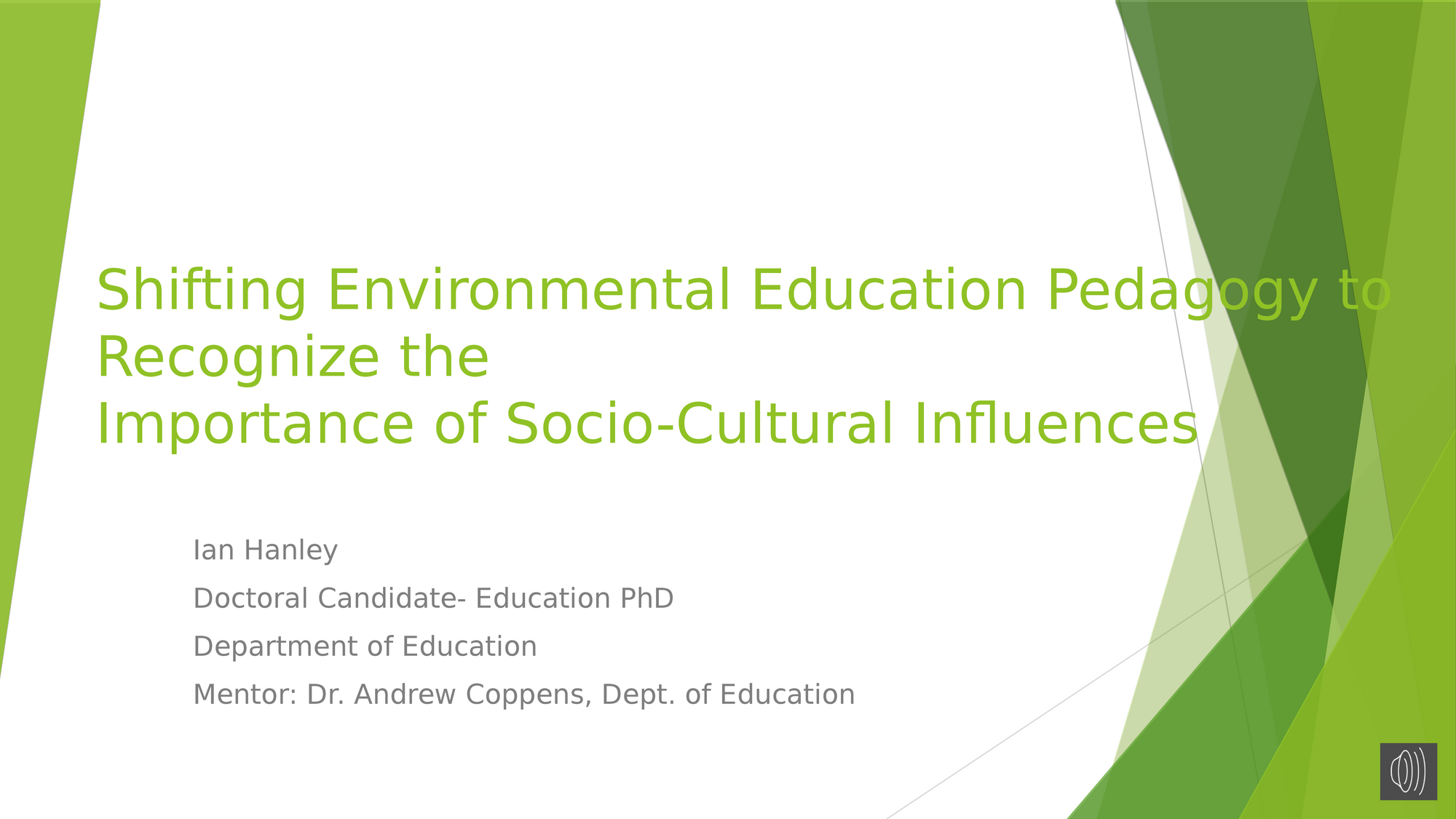Title:
Shifting Environmental Education Pedagogy to Recognize the Importance of Socio-Cultural Influences
Slideshow Presentation
Best viewed by downloading
Preview Converted Images may contain errors

Abstract
Adult environmental education programs play a major role in facilitating stewardship activity. Using primarily qualitative methods, this research utilizes narrative identity constructs to understand how motivation impacts participant interest in these educational programing. Methods consisted of interviews with 22 participants from two cohorts of an adult environmental education program in New Hampshire that focuses on wildlife habitat stewardship. Thematic definitions of motivation and ethnographically-informed observations guided the coding process. Results show that adult participants seek out programs not only to increase content knowledge, but also to access experts and develop peer networks. The study suggest that participants may be more likely to engage in post-program stewardship efforts when the program focuses primarily on group discussion and expert advisement rather than content acquisition. This indicates the value in shifting pedagogical focus away from maximized content acquisition and towards providing opportunity for increased socio-cultural engagement. By implementing this shift, programs can provide more direct guidance for future actions, by giving participants the opportunity to develop their skills in a collaborative fashion with more experienced stewards and peers. A shift in the pedagogical focus of environmental education programs will lead to three major benefits: (1) it will allow participants to engage with more new and diverse ideas; (2) it will increase participants’ access to networking groups, allowing for collaborations between groups engaged in similar stewardship efforts; and (3) it will focus programming on preparing participants to plan for achievable stewardship efforts rather than focusing on sheer content acquisition. In conclusion, shifting programing pedagogy to recognize the importance of socio-cultural motivations will better enable environmental education programs to facilitate stewardship across New Hampshire.
Authors
| First Name |
Last Name |
|
Ian
|
Hanley
|
Leave a comment
Submission Details
Conference GRC
Event Graduate Research Conference
Department Education (GRC)
Group Oral Presentation
Added April 14, 2020, 3:30 p.m.
Updated April 14, 2020, 3:31 p.m.
See More Department Presentations Here